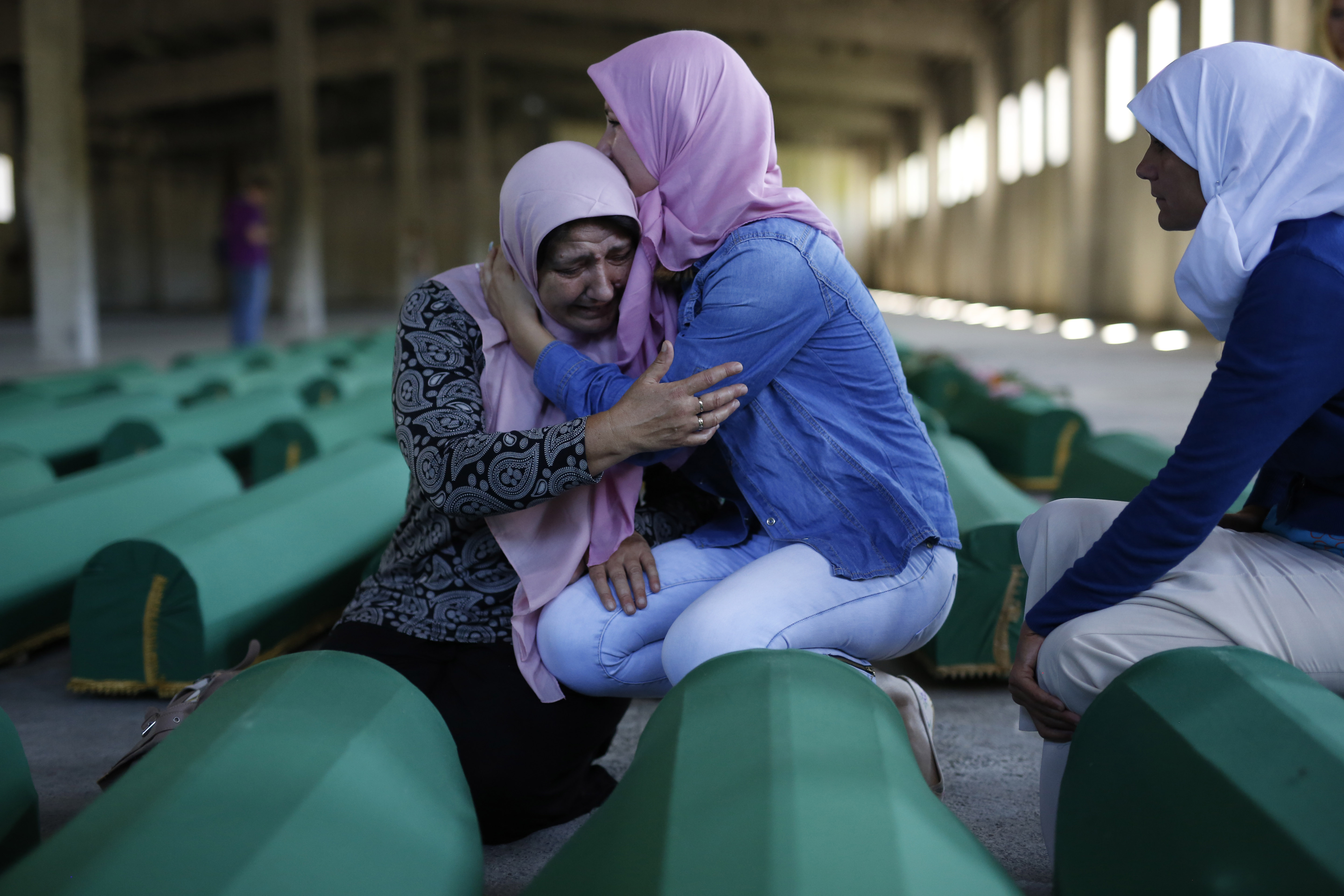Srebrenica << SREH breh neet sah >> Massacre was the worst massacre of the war that raged in Bosnia-Herzegovina from 1992 to 1995. In July 1995, Bosnian Serb forces captured Srebrenica and massacred thousands of Bosniaks (sometimes called Bosnian Muslims) who had taken refuge in the town.

Shortly after the war began, the United Nations (UN) sent peacekeeping troops to the area, mainly to protect aid shipments to war refugees. In 1993, the UN declared Srebrenica, four other towns, and the city of Sarajevo to be safe areas within Bosnia. Civilians in these areas were supposed to be safe from attack. The UN stationed lightly armed Dutch soldiers in and around Srebrenica to enforce the boundaries of the safe area. See United Nations (UN) (Peacekeeping operations).
When Serb troops captured Srebrenica on July 11, 1995, the Dutch forces lacked the military strength to stop them. A group of about 15,000 Bosniaks attempted to flee the safe area, but the Serbs captured most of them. Some escaped or were killed trying to escape. The Serbs claimed that the Bosniak civilians who had not fled would be transferred to other safe areas. They separated the men from the women and children, who were sent away on buses and trucks. Over the next few days, the Serbs executed most of the men.
Investigators later found evidence that the Serbs executed over 7,000 Bosniak men. The UN convicted several Bosnian Serb military leaders for their roles in the massacre. The UN also charged Ratko Mladić, then head of the Bosnian Serb army, and Radovan Karadžić, then leader of the Bosnian Serbs, with war crimes. Karadžić was captured in 2008. His trial began in 2009 at a UN criminal court in The Hague, the Netherlands. In 2016, Karadžić was found guilty of genocide and other war crimes and sentenced to 40 years in prison. In 2019, Karadžić’s sentence was increased to life in prison. Mladić was arrested in 2011. His trial began in 2012. In 2017, the UN convicted Mladić of genocide, war crimes, and crimes against humanity, and sentenced him to life in prison.
Also in 2017, a Serbian war crimes court began to deal with the issue for the first time, as eight former Bosnian Serb police officers accused of participating in the massacre went on trial in Belgrade. In 2018, however, a witness and a defendant failed to appear in court. The trial was delayed several times. A number of other war crimes investigations continued into the 2020’s.
See also Bosnia-Herzegovina; Bosnian War; Milošević, Slobodan.
